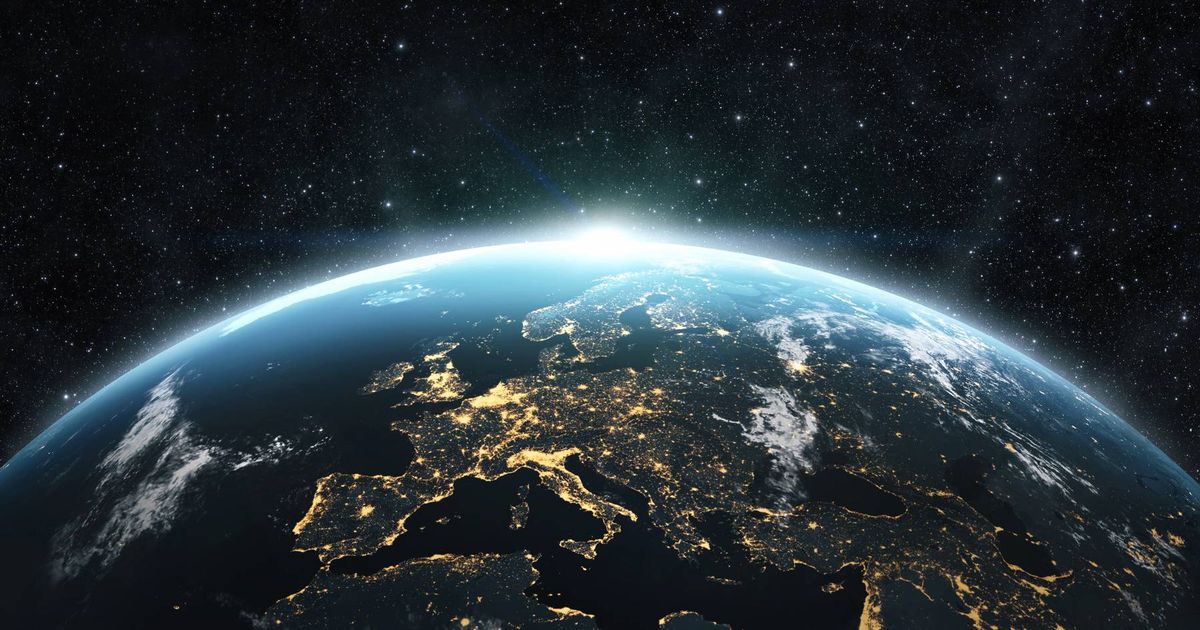Science
Harvard Scientist Claims Mathematical Proof of Higher Power

A Harvard scientist has sparked significant debate by asserting that he has mathematically demonstrated the existence of a higher power. Dr. Willie Soon, an astrophysicist affiliated with Harvard University and the Smithsonian Institution, shared his controversial findings during an appearance on The Tucker Carlson Network.
Dr. Soon’s argument centers on the concept of “fine-tuning,” which posits that the universe’s physical conditions are remarkably precise. He claims that these conditions are so finely calibrated that the probability of life existing by mere chance is exceedingly low. This theory echoes ideas first articulated by renowned physicist Paul Dirac in 1963, who suggested that the mathematical elegance of nature’s laws implies the presence of a superior designer.
Dirac remarked, “It seems to be one of the fundamental features of nature that fundamental physical laws are described in terms of [a] mathematical theory of great beauty and power.” He suggested that our understanding of the universe might lead to the conclusion that “God is a mathematician of a very high order.”
During his discussion, Dr. Soon emphasized the significance of the forces that illuminate human existence. He stated, “God has given us this light, to follow the light and do the best that we can.” His comments suggest a scientific interpretation of the traditional design argument, which compares the universe to a timepiece. The analogy posits that finding a complex timepiece implies the existence of a clockmaker, much like the intricate workings of the universe suggest an intelligent creator.
While Dr. Soon’s assertions have garnered attention, they are not without criticism. Detractors highlight two primary counterarguments to his fine-tuning theory. First, human understanding of the universe remains limited. Although we are carbon-based life forms, it is conceivable that other forms of life could exist under different physical conditions in a parallel cosmos.
The second counterargument focuses on the role of chance in the universe’s existence. Critics argue that improbable events occur regularly, and the mere fact that our universe exists, regardless of the odds, does not necessitate the intervention of a higher power.
As the debate continues, Dr. Soon’s claims have ignited discussions not only within scientific circles but also across social media platforms. The intersection of science and faith remains a contentious topic, with many eager to explore the implications of such assertions on our understanding of existence.
-

 Entertainment4 weeks ago
Entertainment4 weeks agoAimee Osbourne Joins Family for Emotional Tribute to Ozzy
-

 Politics4 weeks ago
Politics4 weeks agoDanny Healy-Rae Considers Complaint After Altercation with Garda
-

 Top Stories1 week ago
Top Stories1 week agoIreland Enjoys Summer Heat as Hurricane Erin Approaches Atlantic
-

 World1 month ago
World1 month agoHawaii Commemorates 80 Years Since Hiroshima Bombing with Ceremony
-

 Top Stories1 month ago
Top Stories1 month agoFianna Fáil TDs Urgently Consider Maire Geoghegan-Quinn for Presidency
-

 World1 month ago
World1 month agoGaza Aid Distribution Tragedy: 20 Killed Amid Ongoing Violence
-

 World1 month ago
World1 month agoCouple Convicted of Murdering Two-Year-Old Grandson in Wales
-

 Top Stories1 month ago
Top Stories1 month agoClashes Erupt Between Far-Right Groups and Migrants in Spain
-

 World1 month ago
World1 month agoAristocrat Constance Marten and Partner Convicted of Infant Murder
-

 Top Stories1 month ago
Top Stories1 month agoHistoric Dalkey Pub The Queens Reopens Under New Management
-

 World1 month ago
World1 month agoTrump Defends FBI Deputy Director Amid Epstein Files Controversy
-

 Politics1 month ago
Politics1 month agoTragic Crowd Surge at Gaza Aid Center Claims 20 Lives









